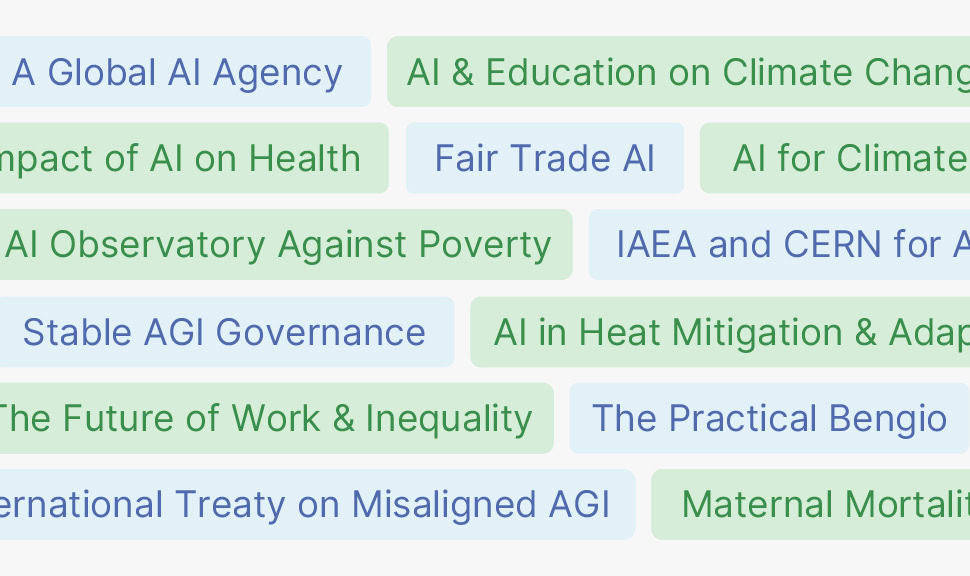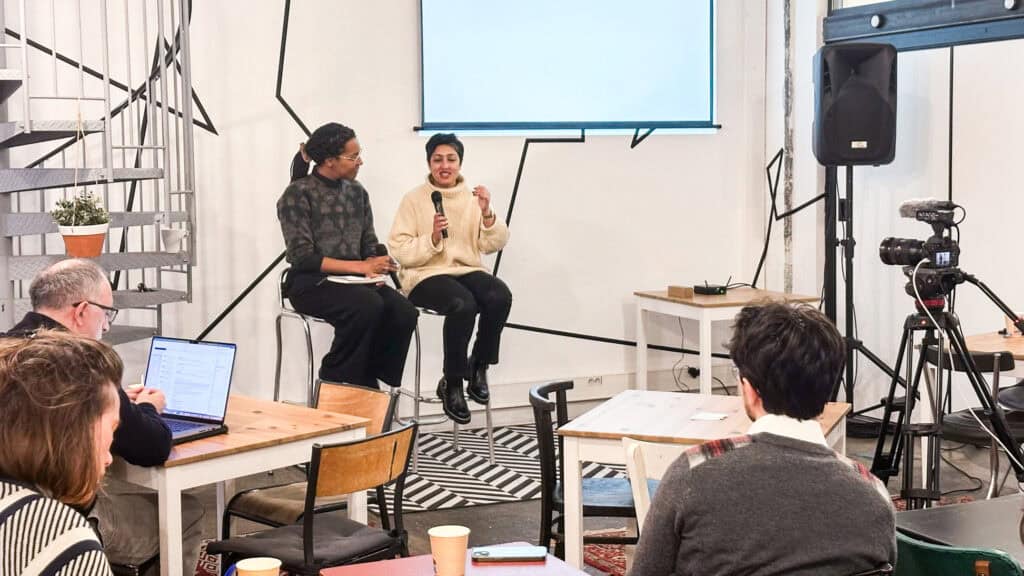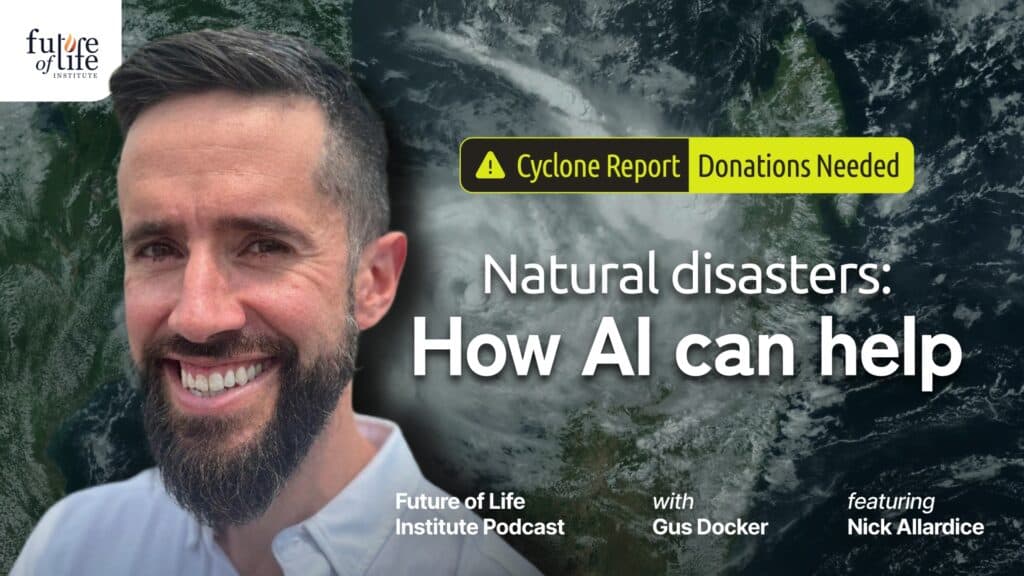Future of Life Institute Announces 16 Grants for Problem-Solving AI

Contents
CAMPBELL, CA — The Future of Life Institute has announced the 16 recipients of its newest grants program, directing $240,000 to support research on how AI can be safely harnessed to solve specific, intractable problems facing humanity around the world.
Two requests for proposals were released earlier this year. The first track called for research proposals on how AI may impact the UN Poverty, Health, Energy and Climate Sustainable Development Goals (SDGs). The second focused on design proposals for global institutions governing advanced AI, or artificial general intelligence (AGI). The 130 entrants hail from 39 countries including Malawi, Slovenia, Vietnam, Serbia, Rwanda, China, and Bolivia.
“Big Tech companies are investing unprecedented sums of money into making AI systems more powerful rather than solving society’s most pressing problems. AI’s incredible benefits – from healthcare, to education, to clean energy – could largely already be realized by developing systems to address specific issues” said FLI’s Futures Program Director Emilia Javorsky. “AI should be used to empower people everywhere, not further concentrate power within a handful of billionaires.”
Grantees have each been awarded $15,000 to support their projects. Recipients from the UN SDG track will examine the effects of AI across areas such as maternal mortality, climate change education, labor markets, and poverty. The global governance institution design grants will support research into a span of proposals, including CERN for AI, Fair Trade AI, and a Global AGI agency.
Find out more about the grantees and their projects below.
Grantees: Global Governance Institution Design
View the grant program webpage for more information about each project.
- Justin Bullock, University of Washington, USA – A global agency to manage AGI projects.
- Katharina Zuegel, Forum on Information and Democracy, France – A “Fair Trade AI” mechanism to ensure AGI systems are ethical, trustworthy, and beneficial to society.
- Haydn Belfield, University of Cambridge, UK – An International AI Agency and a “CERN for AI” to centralize and monitor AGI development.
- José Villalobos Ruiz, Institute for Law & AI and Oxford Martin AI Governance Initiative, Costa Rica – An international treaty prohibiting misaligned AGI.
- Joel Christoph, European University Institute, France – An International AI Governance Organization to regulate and monitor AGI development.
- Joshua Tan, Metagov and University of Oxford, USA – A network of publicly-funded AI labs for safe AGI.
Grantees: AI’s Impact on Sustainable Development Goals
View the grant program webpage for more information about each project.
- Uroš Ćemalović, Center for Ecology and Sustainability, Serbia – AI and education on climate change mitigation.
- Reeta Sharma, The Energy and Resources Institute, India – AI for climate resilience.
- Marko Grobelnik, International Research Centre on AI, Slovenia – An AI-driven observatory against poverty.
- Surekha Tetali, Mahindra University, India – AI for heat mitigation and adaptation.
- Sumaya Adan, Oxford Martin AI Governance Initiative, UK – AI’s impact on poverty alleviation in low-resource contexts.
- M. Oladoyin Odubanjo, Nigerian Academy of Science, Nigeria – AI’s impact on health outcomes in Nigeria.
- Nicholas Ngepah, African Institute for Inclusive Growth, South Africa – AI’s role in reducing maternal mortality.
- Andrés García-Suaza, Universidad del Rosario, Colombia – AI’s impact on labor market dynamics and poverty.
- Surafel Tilahun, Addis Ababa Science and Technology University, Ethiopia – AI’s impact on health outcomes and healthcare.
- Patrick Owoche, Kibabii University, Kenya – AI’s role in enhancing maternal healthcare and reducing maternal mortality.
Note to Editors: Founded in 2014, the Future of Life Institute is a leading nonprofit working to steer transformative technology towards benefiting humanity. FLI is best known for their 2023 open letter calling for a six-month pause on advanced AI development, endorsed by experts such as Yoshua Bengio and Stuart Russell, as well as their work on the Asilomar AI Principles and recent EU AI Act.
About the Future of Life Institute
The Future of Life Institute (FLI) is a global think tank with a team of 20+ full-time staff operating across the US and Europe. FLI has been working to steer the development of transformative technologies towards benefitting life and away from extreme large-scale risks since its founding in 2014. Find out more about our mission or explore our work.
Related content
Other posts about AI Policy, Climate & Environment, Press release

Michael Kleinman reacts to breakthrough AI safety legislation

Context and Agenda for the 2025 AI Action Summit

Paris AI Safety Breakfast #4: Rumman Chowdhury
Some of our grant programs

Request for Proposals on religious projects tackling the challenges posed by the AGI race


